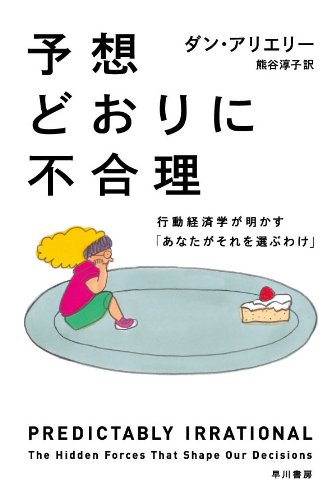- Published on
Why can't your Mercari sell at the "suggested price"? ~The curse of "holding effect" that overestimates your own things~
Source: Dan Ariely, "Absolutely as Imaginable" (Hayakawa Publishing)
Roughly speaking
- The reason why your second-hand clothing cannot be sold at the desired price on a flea market app is because it is under the curse of the "holding effect" that unconsciously overestimates its value.
- As Dan Ariely's "mug experiment" shows, once it's yours, there's a hopeless difference in values between the seller and the buyer.
- The key to breaking this curse is to have a "virtual, non-owned" perspective asking yourself, "If you don't have it, how much would you buy now?"
Introduction: Is it really worth its "good condition"?
He decides to organize his closet, and in high spirits he sells clothes he bought several years ago on a flea market app. "It's in good condition, and it was originally expensive..." You put a slightly bullish price on it. However, no matter how many days passed, the "likes" were not given, and sometimes they only negotiate a major price reduction. I wonder if you think this way. "I have no vision to see this value."
Unfortunately, it may be yours who have no eye on you, not the other person. As Dan Ariely revealed in "Expectedly Absurd," once we "own" something, we cannot objectively judge its value. This is a deep-rooted habit of the mind known as the "holding effect."
Mug Experiment: The Desperate Difference in the Values of the Owner and Buyer
A simple and powerful demonstration of this effect was the "mug experiment" performed by Ariely. He used a very ordinary mug with the university logo on it, splitting the students into two groups.
- **Group A (seller):**First, give him a mug and ask, "How much would you like to sell?"
- **Group B (Buyer): **Not give a mug, ask "How much would you buy?"
Logically speaking, the prices for both should be close, since they are the same mug. However, the results were surprising.
The median offer for Seller (Group A) was 2.25. Once the mug has become "own," it has been transformed into a "treasure" with special value to its owner, and is priced at more than twice its objective value.
Why do only your own things look shining?
Ariely explains why this strange psychology arises, in relation to the fundamental "loss aversion" of humans. Humans are designed to feel the pain of losing something more than twice as strong as the joy of gaining something.
Seller's (owner) Psychology: Giving up a mug is painful, "losing your own property." Therefore, unless the amount is too high enough to compensate for the pain, they won't try to let go.
Psychology of the Buyer: Getting a mug is simply a joy of "simply getting one thing." Since there is no pain to lose, we calmly judge the value of the item and offer a cheap price.
Additionally, the owner focuses on positive memories related to mugs (such as memories of college life), while the buyers look at their comparisons and shortcomings with other mugs. This discrepancy in perspective creates a hopeless price difference.
[Improvement proposal] "Virtual non-owned" thinking method that can be used in flea market apps
Arielly himself suggests how to escape this troublesome bias and "sell" at a reasonable price. The idea is "virtual non-ownership." Before you set a price on a flea market app, ask yourself the following:
"If I didn't have this, and now if the same thing in this state flows through my timeline, how much would I buy it instantly?"
This question will temporarily put you in the position of a "buyer" and separate you from emotional attachment and the pain you lose. This psychological distance will make it easier to make more objective and judgments that are close to the prices the market accepts.
Conclusion: Is that "demand" really worth it?
The effect of holding is not just about priced items. Our "opinions" and "old-fashioned ways" are also strongly influenced by this effect. Just because it lasts for so long, we overestimate it and feel excessive pain in letting it go.
Your belongings, your opinions, your career. Why not look at them as "virtual non-owners"? It may not be as valuable as you think it is. And acknowledging this is the first step towards gaining new value.
[Actions to encourage action] Why do most people not return a sofa when they buy a money-back guarantee? The answer lies in "as expected, irrational." Take a look into the abyss in this book how the feeling of possession distorts our judgment. Many clever experiments will surely overturn your "natural."

